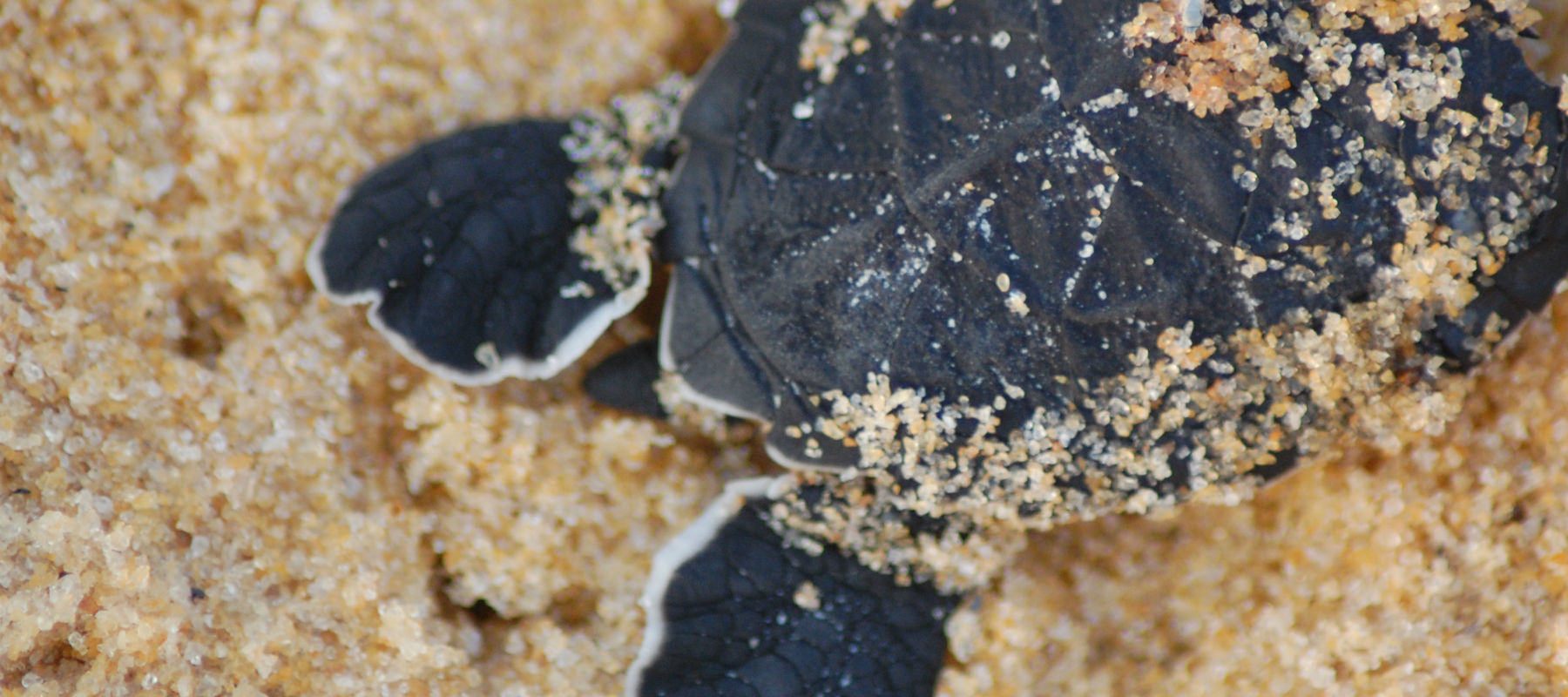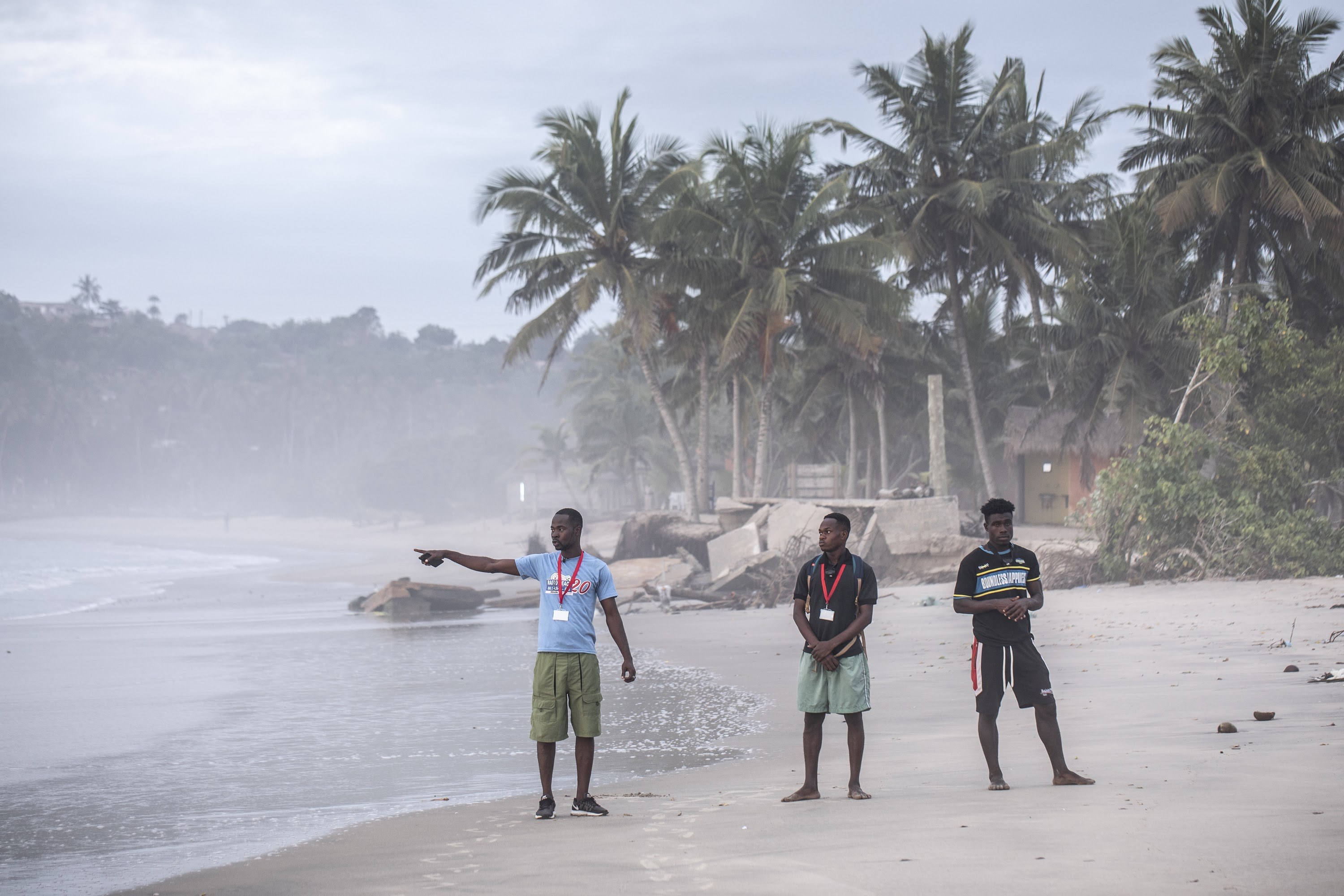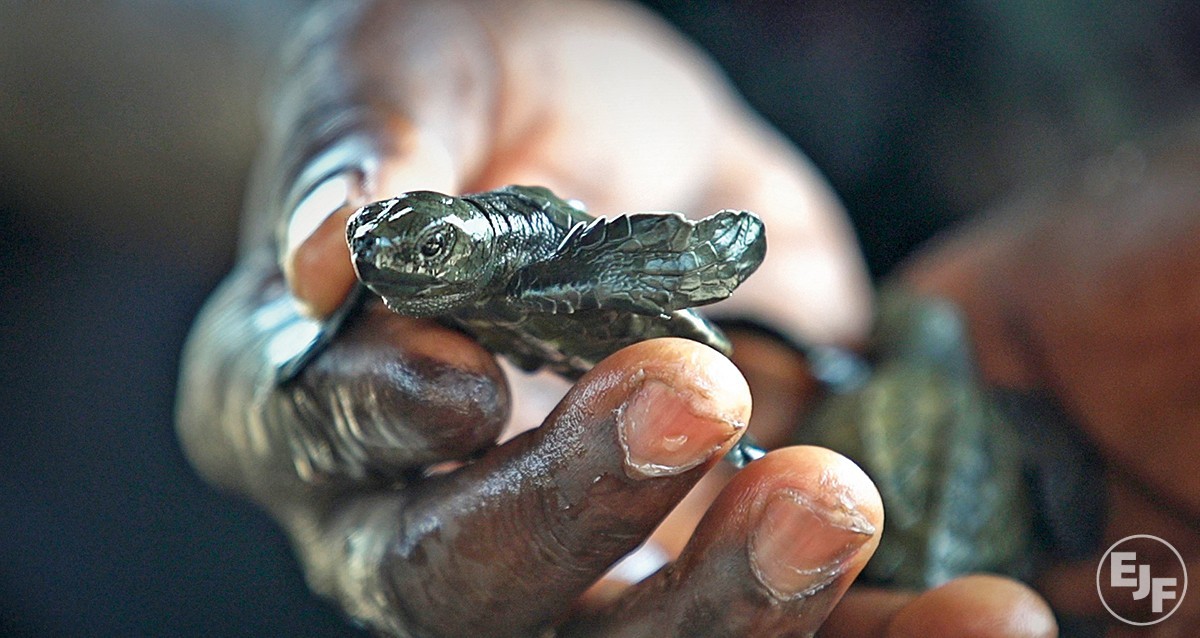The turtle nesting season at Gomoa Fetteh in Ghana is coming to an end and EJF turtle patrollers – our superheroes of the seas who have been patrolling the beaches nightly to monitor nesting and deter poachers – are feeling buoyant.
This season, the poaching levels recorded were only around half what they were last time, comparing September - December 2019 and 2020.
“Compared to the past nesting season, we are elated with the season so far with much increased numbers of successful nesting turtles at the two nesting beachfronts,” says patroller Kow Amissah.
“Also we haven't encountered as many poaching activities this season as a result of our constant engagement with poachers and the fishers, which is gradually yielding results.”
An early Christmas present for the whole team in December was seeing 120 Olive Ridley hatchlings – a species listed as vulnerable by the IUCN – making their way safely to the sea.
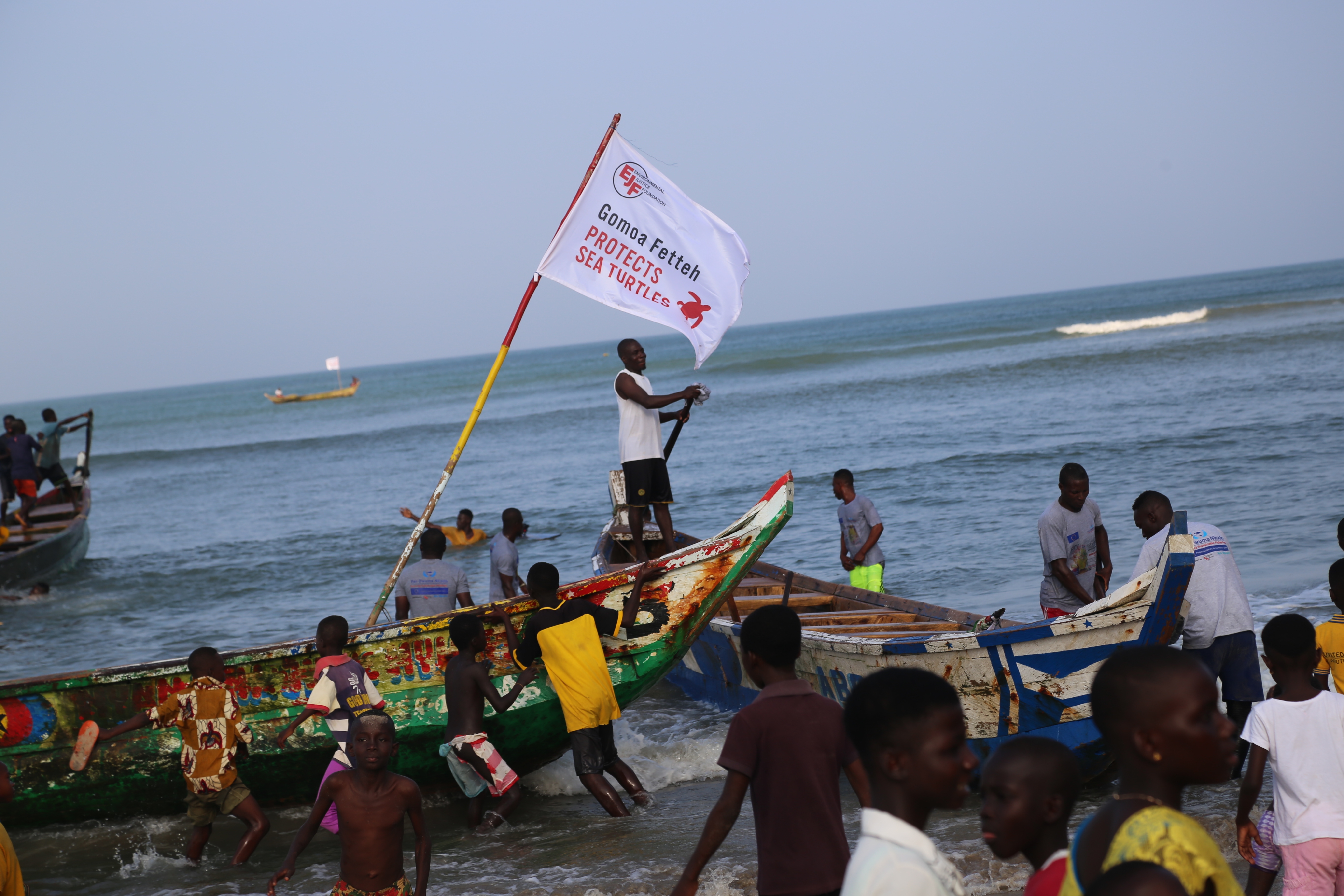
Working with fishers
A crucial win for the team this season was successfully negotiating with a fisherman to release an Olive Ridley turtle that had become entangled in his fishing net. This is a good sign of progress, as often fishers will look to sell any turtles they catch to compensate for damage caused to their fishing nets.
The accidental capture of sea turtles in fishing nets – particularly in gillnets – is a major threat to turtle populations in Ghana’s waters. At the end of last year, in collaboration with the Ghana Wildlife Division, EJF spoke to 25 fishers at Gomoa Fetteh about the importance of releasing turtles trapped in fishing nets. We are planning to follow this up with sessions to train fishers on handling and releasing turtles safely and to supply them with kits to repair their nets.
This new film will be shown at screenings in the community to raise awareness of the importance of sea turtles in supporting healthy marine ecosystems and fisheries. In addition, a new beach patrol guide has been developed, especially helpful for training new patrollers in other communities.
A way forward
Sadly, work over the past two years has confirmed that Gomoa Fetteh is a local hub for processing and butchery of turtle meat. On just one day, the team recorded four turtles that had been brought by road from the neighbouring community of Senya Beraku for processing in Gomoa Fetteh. In the coming months we will explore the possibilities for expansion of the project into these areas.
In Gomoa Fetteh we are speaking with the four women in the community who process turtle meat as their main livelihood.
According to the women, turtle processing is profitable due to the scarcity of turtle meat in the community. It provides sustenance for their families and enables them to send their children and grandchildren to school.
However, all four women said they would be willing to pursue other sources of income and they all told us they have clear ideas for alternatives – from small-scale trading (in food or cooking equipment), to pastry making and fish processing. The main obstacle to pursuing these projects is a lack of capital, and loans with prohibitively high interest rates.
Informed by these discussions, we’re developing a programme to support these women to explore their options. This may include help in developing business plans, cost-benefit analyses or market assessments to enable them to make informed economic decisions. We will also examine appropriate funding mechanisms.
The community at Gomoa Fetteh is open to discussing new ways that mean they can protect these gentle giants of the ocean. We are looking forward to the 2021 season, and the next set of hatchlings scrambling towards the sea.
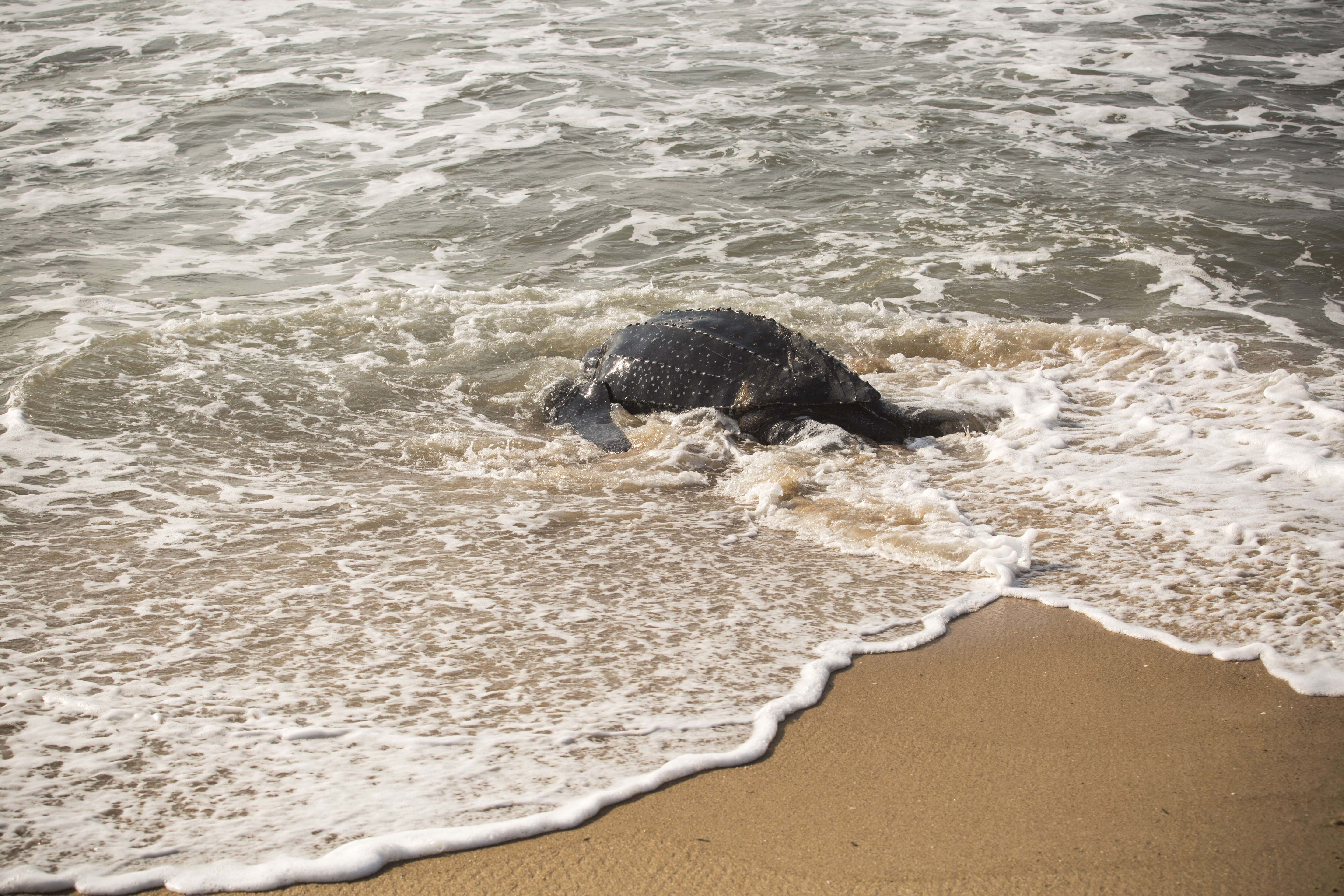
SIGN UP FOR OUR EMAILS AND STAY UP TO DATE WITH EJF
